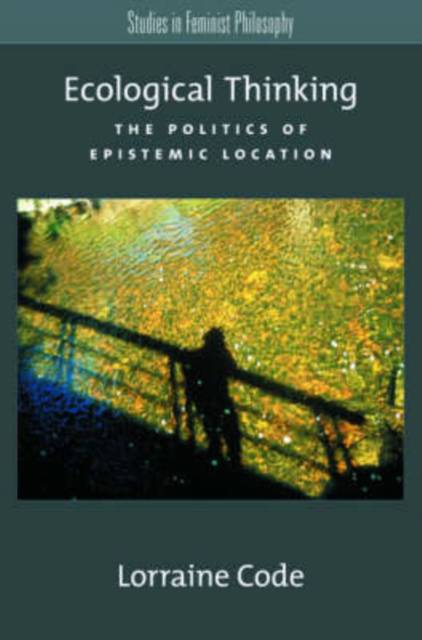
Bedankt voor het vertrouwen het afgelopen jaar! Om jou te bedanken bieden we GRATIS verzending (in België) aan op alles gedurende de hele maand januari.
- Afhalen na 1 uur in een winkel met voorraad
- In januari gratis thuislevering in België
- Ruim aanbod met 7 miljoen producten
Bedankt voor het vertrouwen het afgelopen jaar! Om jou te bedanken bieden we GRATIS verzending (in België) aan op alles gedurende de hele maand januari.
- Afhalen na 1 uur in een winkel met voorraad
- In januari gratis thuislevering in België
- Ruim aanbod met 7 miljoen producten
Zoeken
Omschrijving
How could ecological thinking animate an epistemology capable of addressing feminist, multicultural, and other post-colonial concerns? Starting from an epistemological approach implicit in Rachel Carson's scientific practice, Lorraine Code elaborates the creative, restructuring resources of ecology for a theory of knowledge. She critiques the instrumental rationality, abstract individualism, and exploitation of people and places that western epistemologies of mastery have legitimated, to propose a politics of epistemic location, sensitive to the interplay of particularity and diversity, and focused on responsible epistemic practice.
Drawing on ecological theory and practice, on naturalized epistemology, and on feminist and post-colonial theories, Code analyzes extended examples from developmental psychology, and from two "natural" institutions of knowledge production--medicine and law. These institutions lend themselves well to a reconfigured naturalism. They are, in practice, empirically-scientifically informed, specifically situated, and locally interpretive. With human subjects as their "objects" of knowledge, they invoke the responsibility requirements central to Code's larger project.
This book discusses a wide range of literature in philosophy, social science, and ethico-political thought. Highly innovative, it will generate productive conversations in feminist theory, and in the ethics and politics of knowledge more broadly conceived.
Drawing on ecological theory and practice, on naturalized epistemology, and on feminist and post-colonial theories, Code analyzes extended examples from developmental psychology, and from two "natural" institutions of knowledge production--medicine and law. These institutions lend themselves well to a reconfigured naturalism. They are, in practice, empirically-scientifically informed, specifically situated, and locally interpretive. With human subjects as their "objects" of knowledge, they invoke the responsibility requirements central to Code's larger project.
This book discusses a wide range of literature in philosophy, social science, and ethico-political thought. Highly innovative, it will generate productive conversations in feminist theory, and in the ethics and politics of knowledge more broadly conceived.
Specificaties
Betrokkenen
- Auteur(s):
- Uitgeverij:
Inhoud
- Aantal bladzijden:
- 344
- Taal:
- Engels
- Reeks:
Eigenschappen
- Productcode (EAN):
- 9780195159448
- Verschijningsdatum:
- 27/04/2006
- Uitvoering:
- Paperback
- Formaat:
- Trade paperback (VS)
- Afmetingen:
- 160 mm x 233 mm
- Gewicht:
- 512 g

Alleen bij Standaard Boekhandel
+ 244 punten op je klantenkaart van Standaard Boekhandel
Beoordelingen
We publiceren alleen reviews die voldoen aan de voorwaarden voor reviews. Bekijk onze voorwaarden voor reviews.









